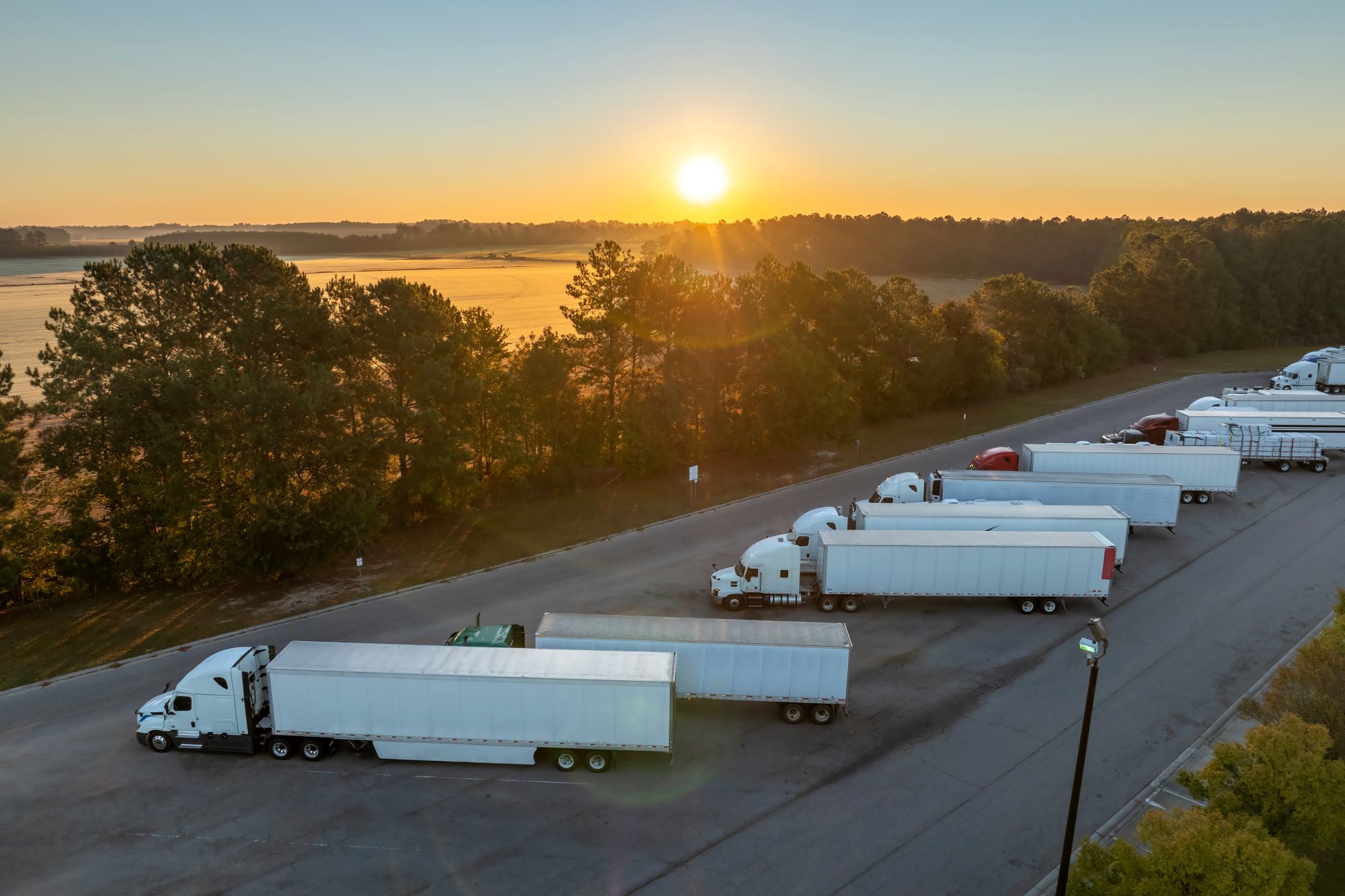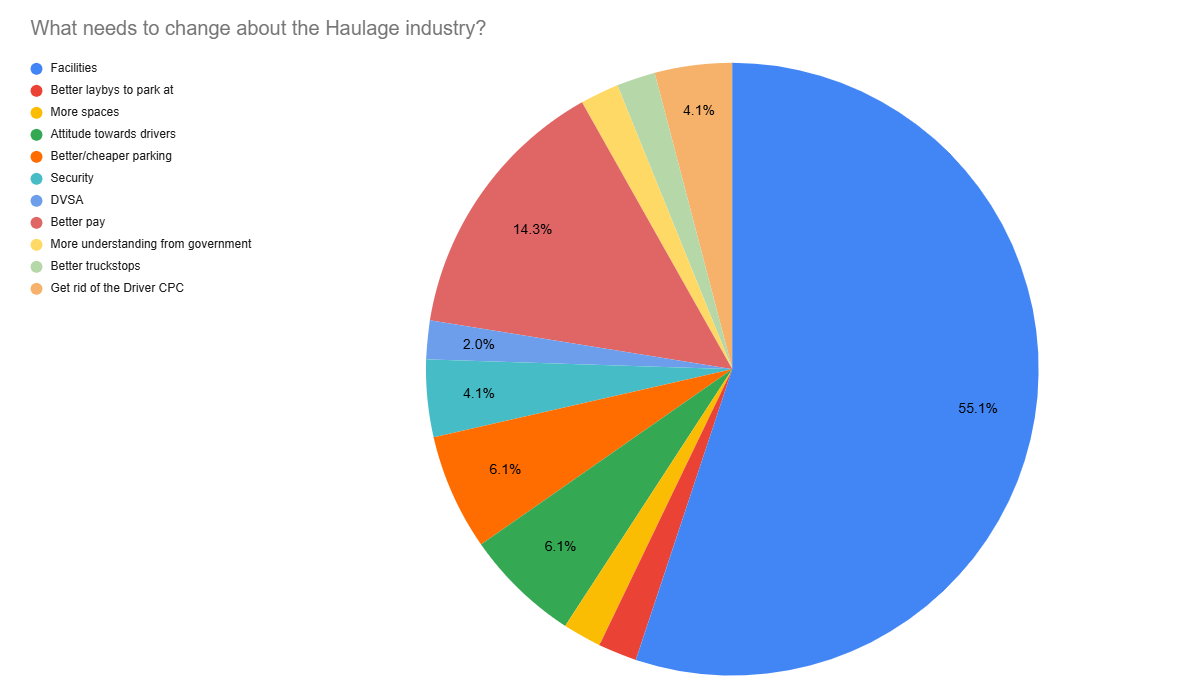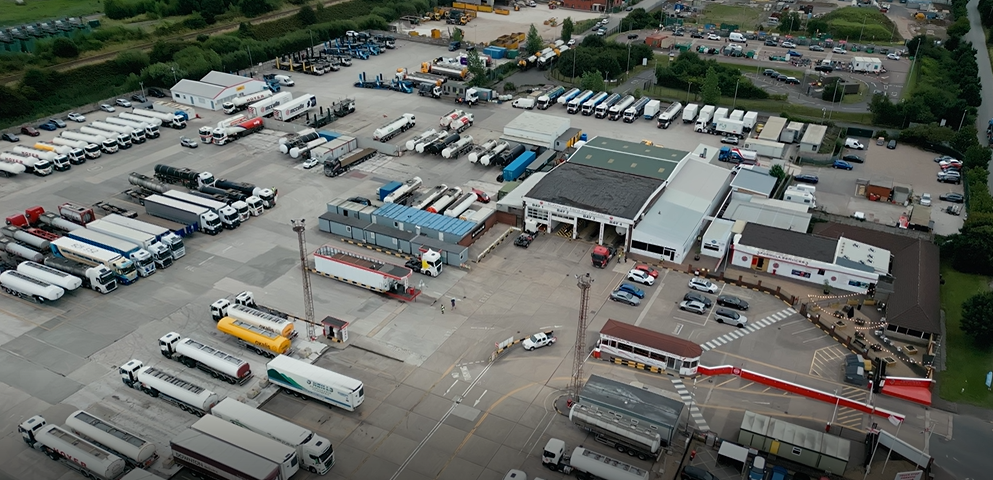
Susie Jones
Camionistas apelam à reforma do sector
Criado: 05/02/2025
•
Atualizado: 05/02/2025
Atualmente, as mulheres condutoras de veículos pesados de mercadorias no Reino Unido representam apenas 1% de todos os condutores - um número que aumentou 144% na última década, à medida que são introduzidas mais iniciativas para promover a diversidade e colmatar a falta de condutores.
Um artigo Fleetpoint descreve as várias formas de o sector poder atrair mais mulheres para o sector:
Cultivar um ambiente de trabalho favorável e acolhedor.
Melhoria das infra-estruturas e dos equipamentos.
Regimes de trabalho flexíveis e favoráveis à família.
Criar percursos claros para o crescimento na carreira.
Apesar disso, os condutores nas [redes sociais] (https://www.facebook.com/photo/?fbid=988050383364634&set=a.482170237285987&locale=en_GB) defendem que estes desafios de longa data no sector devem ser resolvidos por todos antes de serem lançadas novas iniciativas para colmatar a falta de condutores.
Escassez de motoristas - onde está o sector agora?
A escassez de motoristas tem sido um problema persistente para o sector dos transportes, mas após a COVID-19 e o Brexit, atingiu níveis críticos. Em 2024, a Europa, a Noruega e o Reino Unido careciam de mais de 233.000 condutores de camiões - um número que deverá ultrapassar os 745.000 em 2028 devido ao envelhecimento da mão de obra.
A indústria ainda está a lidar com as consequências e está a trabalhar no sentido de implementar novas iniciativas para promover a diversidade, melhorar as condições de trabalho e colmatar o fosso entre os trabalhadores.
O Governo implementou cerca de [33](https://www.gov.uk/government/topical-events/hgv-driver-shortage-uk-government-response/about#:~:text=We%20extended%20dangerous%20goods%20(ADR,to%20take%20refresher%20training%20now.) acções para fazer face à escassez de condutores de veículos pesados no Reino Unido. Incluindo, mas não se limitando a:
Aumentar a eficiência das cadeias de abastecimento existentes.
Prestação de apoio e formação a novos condutores de veículos pesados de mercadorias.
Alargar a capacidade de controlo dos condutores de veículos pesados.
Melhoria dos processos de licenciamento.
Melhoria das condições.
Garantir a estabilidade da cadeia de abastecimento de combustíveis.

O que precisa de mudar? Os condutores têm uma palavra a dizer.
49% dos condutores nas redes sociais defendem que as mudanças devem ser implementadas independentemente do género - com 27% das mulheres condutoras de veículos pesados a concordarem que o sector deve evoluir para todos. 24% afirmaram que o trabalho deixou de ser atrativo, realçando a necessidade de mudança no sector. Então, o que é que os condutores querem ver mudado?
Instalações
55% gostariam de ver as instalações melhoradas para todos:
"É preciso haver melhores instalações e melhor tratamento, ponto final. Toda a indústria é um caos e nós somos maltratados."
"As comodidades são péssimas para todos os condutores, homens e mulheres."
Em novembro de 2024, um [inquérito da Transport Focus] (https://www.britsafe.org/safety-management/2024/uk-truckers-why-more-action-is-needed-to-make-their-working-lives-safer-and-healthier#:~:text=Improving%20roadside%20facilities&text=Drivers%20have%20long%20been%20telling,asked%20expressed%20dissatisfaction%20with%20both.) concluiu que dois terços dos condutores estavam insatisfeitos com as instalações das paragens de camiões - com comodidades sujas, más opções alimentares e falta de espaço social a causarem problemas significativos.
O Governo e o sector dos transportes tomaram medidas significativas, investindo 14 milhões de libras para promover a inovação e melhorar as condições de trabalho.
Em outubro de 2024, 23 candidatos selecionados receberam até 4,5 milhões de libras para melhorar as suas estações de camionagem. As melhorias incluirão novos chuveiros, restaurantes e elementos de segurança reforçados para proporcionar maior tranquilidade aos condutores. Além disso, o projeto criará cerca de 430 lugares de estacionamento para veículos pesados de mercadorias.
Pagamento
A melhoria dos salários surge em segundo lugar na lista, com 14% dos condutores a defenderem que o aumento dos salários incentivaria mais pessoas a entrar no sector:
"Tornar o mercado atrativo para todos, aumentar os salários".
O aumento dos salários terá um custo significativo para os líderes do sector. Se o salário médio dos condutores de camiões aumentasse de acordo com o National Living Wage, os operadores de frotas poderiam ter de pagar mais 1,5 mil milhões de libras por ano.
Apesar disso, o investimento melhorará as taxas de retenção, reduzirá as despesas de recrutamento e diminuirá os custos de formação. A oferta de salários mais elevados não só tornaria a profissão mais atractiva para os novos candidatos, como também reconheceria o papel fundamental que os motoristas desempenham na manutenção da cadeia de abastecimento.
Atitude em relação aos condutores
Ao longo dos anos, as opiniões públicas sobre os camionistas evoluíram significativamente. A vida de um camionista foi muitas vezes romantizada em filmes e nos meios de comunicação social populares, levando muitos a acreditar que a sua vida é fácil. No entanto, também os apresentava como heróis trabalhadores, uma imagem que se tem vindo a deteriorar ao longo do tempo.
No final do século XX, as percepções mudaram à medida que as condições de trabalho se tornaram difíceis e os condutores de camiões passaram a ser alvo de estereótipos injustos - muitas vezes devido a uma representação incorrecta dos meios de comunicação social e, por vezes, a alguns condutores inexperientes. Estes estereótipos negativos foram atenuados durante a pandemia de COVID-19, quando o apreço do público pelos camionistas aumentou.
Hoje em dia, existe respeito pelos camionistas - no entanto, o sector continua a ser afetado por estereótipos e atitudes negativas. Algo que 6% dos condutores gostariam que mudasse:
"Pensando na Covid, fomos considerados heróis, mas depois tudo voltou ao normal. Não é de admirar que os actuais motoristas, homens e mulheres, queiram abandonar o sector. Estão fartos do tratamento de lixo que enfrentam diariamente".
"Seria bom não sermos tratados como escumalha."
Nos últimos anos, a ascensão das redes sociais começou a desafiar e a mudar as percepções negativas. Muitos condutores estão a utilizar plataformas como o TikTok e o Instagram para partilhar ideias sobre a sua função, dissipar ideias erradas e ganhar o respeito de quem não pertence ao sector.
As reacções mostram a necessidade urgente de o sector dos transportes rodoviários de mercadorias implementar mudanças para atrair e reter os actuais e os novos motoristas. A sub-representação das mulheres continua a ser um desafio significativo e o investimento em instalações que satisfaçam as suas necessidades é crucial. No entanto, este investimento deve ser inclusivo e beneficiar toda a força de trabalho.

Que países têm falta de condutores de camiões?
Os países da Europa foram os mais afectados, com muitas empresas de camionagem incapazes de expandir o seu negócio por não conseguirem encontrar trabalhadores qualificados.
A Europa tem uma população de camionistas envelhecida, com uma [idade média de 47 anos] (https://www.iru.org/news-resources/newsroom/half-european-truck-operators-cant-expand-due-driver-shortages#:~:text=The%20EU%2C%20Norway%20and%20the,an%20average%20age%20of%2047.). Um terço dos camionistas tem mais de 55 anos e espera-se que se reformem nos próximos dez anos. Além disso, menos de 5% dos condutores de camiões na Europa têm menos de 25 anos - o que realça a lacuna que será deixada quando uma força de trabalho envelhecida se reformar.
Existe um dia de apreciação do motorista de camião?
O [Dia dos condutores de veículos pesados de mercadorias] (https://https://snapacc.com/newsroom/hgv-drivers-day-2025-giving-truckers-a-voice/) tem lugar no dia 22 de janeiro e foi criado pela NN1 Personnel. O dia tem como objetivo celebrar os condutores de camiões e tudo o que fazem pela economia e pela sociedade.
Quais são as perspectivas do sector dos transportes rodoviários para 2025?
Com base no nosso blogue [The Road Ahead for 2025] (https://snapacc.com/newsroom/the-road-ahead-for-2025-truck-industry-trends-to-expect/), prevemos que, este ano, o sector dos transportes rodoviários de mercadorias se destaque do seguinte modo
Aproveitar as vantagens da IA.
Combater as disparidades entre homens e mulheres e a escassez de condutores.
Promover uma indústria mais ecológica.
Aumento do transporte de mercadorias a longa distância.



